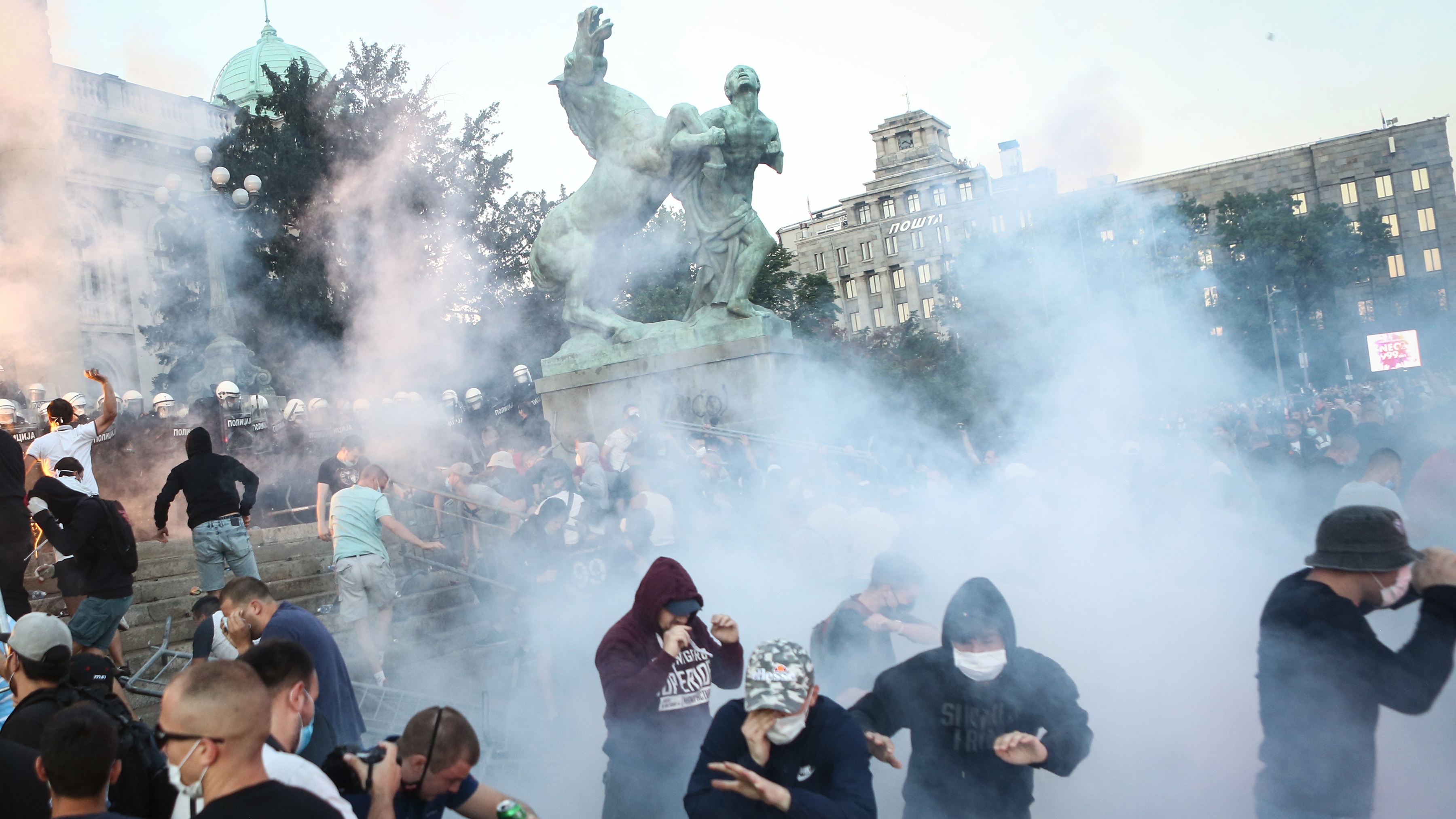Why violent protests have broken out in Belgrade
Europe’s first major uprising over strict lockdown rules linked to wider ‘curbing of democratic freedoms’

A free daily email with the biggest news stories of the day – and the best features from TheWeek.com
You are now subscribed
Your newsletter sign-up was successful
Protesters have clashed with police in Belgrade in a third consecutive night of violence triggered by plans to reintroduce strict lockdown measures to tackle a surge in coronavirus infections.
The protests “began peacefully on Tuesday evening and included students and families, angered by a move to re-impose a weekend curfew”, the BBC reports. But “Wednesday’s rally saw protesters hurl flares and other objects at police”, who responded with tear gas in “choatic scenes” in front of the Serbian capital’s parliament, adds The Guardian.
“Scores of police officers and protesters were injured and dozens of civilians were arrested” as some activists attempted to force their way into the parliament building, says Radio Free Europe.
The Week
Escape your echo chamber. Get the facts behind the news, plus analysis from multiple perspectives.

Sign up for The Week's Free Newsletters
From our morning news briefing to a weekly Good News Newsletter, get the best of The Week delivered directly to your inbox.
From our morning news briefing to a weekly Good News Newsletter, get the best of The Week delivered directly to your inbox.
In an apparent bid to quell the violence, President Alexander Vucic announced on Wednesday that the planned curfew was to be scrapped.
But the protests have become linked to a wider pro-democracy movement in Serbia, with demonstrators who took to the streets once again last night accusing Vucic of curbing freedoms in the Balkan state.
The unrest follows demonstrations in May during which protesters from the “Citizens’ Resistance” movement told the Voice of America news agency that “we think that this is a dictatorship we are living in nowadays”.
This week’s round of unrest has been marked by “brutal political violence”, with videos circulating on social media showing police beating protestors.
A free daily email with the biggest news stories of the day – and the best features from TheWeek.com
A man who “became the public face of Serbian frustration on the first night of the unrest” has “accused police of using nightsticks, tear gas, and other weapons against unarmed protesters”, Voice of America reports.
Video footage of the man, identified as Petar Djuric, went viral after “he announced to a live camera through tears of anger that his father had died at Belgrade’s Zemun Hospital after waiting three days for a ventilator despite Serbian officials’ assurances there would be no shortage of such lifesaving equipment”, according to the news agency.
“Dad, this is for you,” Djuric shouted repeatedly, before rejoining the protests.
President Vucic has challenged Djuric’s version of events and claimed at a press conference on Wednesday that right-wing groups and “foreign secret services” were behind the violence on the streets.
Joe Evans is the world news editor at TheWeek.co.uk. He joined the team in 2019 and held roles including deputy news editor and acting news editor before moving into his current position in early 2021. He is a regular panellist on The Week Unwrapped podcast, discussing politics and foreign affairs.
Before joining The Week, he worked as a freelance journalist covering the UK and Ireland for German newspapers and magazines. A series of features on Brexit and the Irish border got him nominated for the Hostwriter Prize in 2019. Prior to settling down in London, he lived and worked in Cambodia, where he ran communications for a non-governmental organisation and worked as a journalist covering Southeast Asia. He has a master’s degree in journalism from City, University of London, and before that studied English Literature at the University of Manchester.